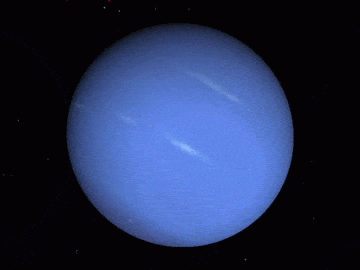Venus
 |
| [1] Venus |
Venus, approximately 4.503 billion years old is a terrestrial planet that orbits the sun every 225 days and is the second closest planet to the sun. Referred to as the sister planet of Earth, Venus is "made up of a central iron core and a rocky mantle, similar to composition to Earth" [2] and has an atmosphere which is mostly comprised of Carbon Dioxide (96%) and Nitrogen (3%) making it an inhabitable planet. Although compared to as the sister planet to Earth, temperatures on this planet range much higher than Earth with temperatures ranging approximately 465 degrees celcius making it the hottest planet within the solar system. The reason why Venus is the hottest planet is due to its "thick atmosphere full of greenhouse gas carbon dioxide and clouds made of sulfuric acid" [2] which keep Venus warm through trapping heat within its atmosphere. The video below helps to explain this further:
Venus is one of two planets (Mercury) within the solar system that "spins on its axis from east to west" [4] and has the slowest rotation of any planet due to its thick atmosphere. Astronomers believe "that the Sun's strong gravitational pull on the dense atmosphere of Venus; the atmospheric tides that they would create; and the tidal pulls from other planets, could have all combined to reverse the planets spin" [4]. The planet orbits the sun at approximately 78,337 miles per hour (compared to 1000 miles per hour for Earth) making a year just 224.65 Earth days. Another interesting feature of Venus is it is one of two planets (Mercury) within the solar system that have no known moons orbiting them which for Venus in particular has puzzled astronomers. With Mercury, the suns overpowering gravitational pull could capture any moon in Mercury's atmosphere whereas with Venus, the gravitational pull would not be strong enough to guarantee this. In addition to this, Venus is the brightest planet within the solar system "and is the third-brightest object in the sky, after the sun and moon" [5] due to being able to absorb sunlight from the sun within its thick atmosphere and surface making it appear brighter than any other planet. Overall, Venus is one of the planets which astronomers are still trying to gain a better understanding of and through many more planned missions such as the proposed 'VERITAS' mission which is planned to travel to Venus by 2026, astronomers hope to answer these unresolved questions.
References:
[1] pinterest.com. [n.d.]. Solar System Gif. [Online] Available at: https://www.pinterest.com/pin/47428602304996739/ [Last Accessed 13/10/2020].
[2] coolcosmos.ipac.caltech.edu. [n.d.]. What is Venus made of?. [Online] Available at: https://coolcosmos.ipac.caltech.edu/ask/47-What-is-Venus-made-of-#:~:text=Venus%20is%20made%20up%20of,small%20amounts%20of%20other%20gases. [Last Accessed 13/10/2020].
[3] V101 Science. [2020]. Venus 101 The Hottest Planet In The Solar System (4K UHD). [Online] Available at: https://www.youtube.com/watch?v=B-oDlVhXBJU [Last Accessed 13/10/2020].
[4] Neild, D. [2016]. Why Are Venus And Uranus Spinning in The Wrong Direction?. [Online] Available at: https://www.sciencealert.com/why-are-venus-and-uranus-spinning-in-the-wrong-direction [Last Accessed 13/10/2020].
[5] earthsky.com. [2018]. Why is Venus so bright?. [Online] Available at: https://earthsky.org/space/brightest-planet-brightest-mirrors-venus [Last Accessed 13/10/2020].


Comments
Post a Comment